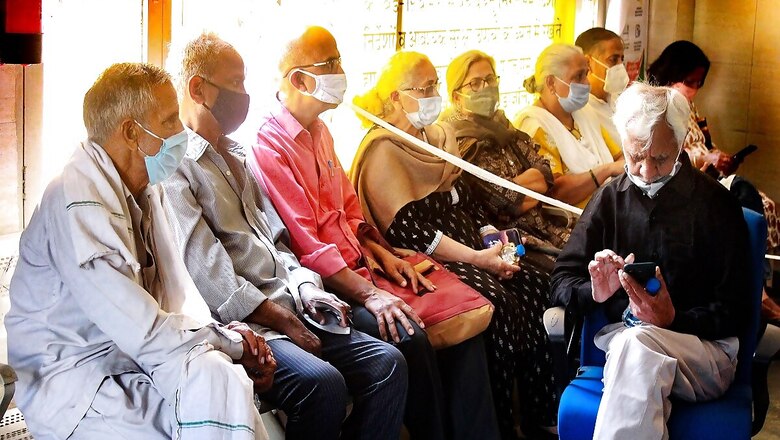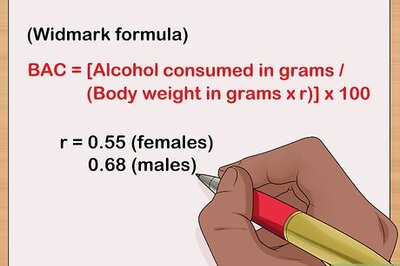
views
In a three-part series on Vaccines Demystified, we have so far discussed Covishield and Covaxin as well as some other vaccines currently in use against Covid-19 in countries across the world. In this article, we will look at vaccines being developed by Novavax, Inc., Sanofi-GSK, Russia’s Gamaleya Institute, China’s Sinovac and Sinopharm, and Ahmedabad-based Zydus-Cadila.
Novavax
On February 22, Novavax, Inc. announced it has enrolled 30,000 volunteers in PREVENT-19, its Phase-3 study in the United States and Mexico, to evaluate efficacy, safety and immunogenicity of its Covid-19 vaccine, NVX-CoV2373. In January this year, the biotechnology firm had reported 89.3 per cent interim efficacy results from an ongoing Phase-3 clinical trial in the UK, with two doses 21 days apart.
NVX-CoV2373 is a protein-based vaccine engineered from the genetic sequence of SARS-CoV-2. Recombinant nanoparticle technology is used to generate antigen derived from the coronavirus spike (S) protein, which is adjuvanted (for a stronger immune response) with company’s patented saponin-based Matrix-M.
Novavax CEO recently said that the vaccine could get Emergency Use Authorisation (EUA) by the FDA as early as May, based on THE data compiled from the UK trial. The vaccine has shown 86 per cent efficacy against the UK variant and 60 per cent against the South African variant of the virus. However, Californian and Brazil variants remain a concern, as do hybrids. The Serum Institute of India has partnered with Novavax for manufacturing NVX-CoV2373 locally.
Sputnik V
On March 2, Head of the Operations Research Group of Covid-19 Task Force Dr N.K. Arora said that Russian vaccine Sputnik V could be available for use in India within the next 4-6 weeks. On February 24, the Drugs Controller General of India (DCGI) had asked Dr Reddy’s to supply additional data on the immunogenicity of the vaccine for emergency use approval. Dr Reddy’s Laboratories is manufacturing Sputnik V in India and currently facilitating its trials on Indian population.
The vaccine, also known as Gam-COVID-Vac, has been developed by the Gamaleya Research Institute of Epidemiology and Microbiology, Russia. It uses heterologous recombinant adenovirus types 26 (Ad26) and 5 (Ad5), incorporating spike protein cDNA to induce immunogenicity in recipients. Ad26 is used for initial dose on day one and Ad5 as booster dose vector 21 days later. As per unconfirmed reports from Russian media, one of the daughters of President Vladimir Putin was among the earliest recipients of this vaccine in August 2020.
An article published in the Lancet on February 2 said the efficacy of Sputnik V was 91.6 per cent. The company claims nearly 100 per cent efficacy in severe coronavirus. It is also reported to protect from hospitalisation and death, thereby joining the league of Pfizer-BioNtech, Moderna and AstraZeneca jabs.
Russia started mass immunisation on December 5 from Moscow, giving priority to healthcare staff, teachers and social workers. Almost 20 counties have procured Sputnik V, including Hungary and Slovakia, and 39 countries are reported to have registered for it. This week, the European Medicines Agency said it will “start assessing the Russian jab”.
However, BBC on March 3 reported that the vaccine’s uptake on home turf has been surprisingly low. Only 28 of the 1,000 inhabitants of village Sputnik reportedly came forward to take the vaccine. A poll by sociologists at the Levada Centre this week found only 30 per cent of Russians were willing to receive Sputnik V, down by 8 per cent since the rollout began. It is widely believed that Russian President Vladimir Putin himself has chosen not to get vaccinated so far.
Another Russian vaccine, EpiVacCorona, an antigen-based vaccine developed by the State Research Center of Virology and Biotechnology VECTOR, is claimed to be nearly 100 per cent effective against Covid-19.
Sanofi-GSK
On December 11, an official press release from Sanofi and GSK, issued in London and Paris, stated that Phase 1/2 interim results of its adjuvanted recombinant protein-based vaccine showed an immune response “comparable to patients who recovered from Covid-19 in adults aged 18 to 49 years.” However, older individuals showed “insufficient” response and the company acknowledged the need to “refine” the concentration of antigen in the vaccine.
On February 22, the companies announced a new Phase-2 study and a plan for Phase-3 study in second quarter of 2021, along with a study of efficacy on Covid-19 variants. French pharmaceutical company Sanofi is also working on an mRNA-based vaccine in partnership with Translate Bio.
In January this year, it was reported that Sanofi has entered into an agreement with BioNTech for late-stage manufacturing of the latter’s vaccine for the European Union from the summer of 2021. The company is expecting to produce 125 million doses from its Frankfurt-based facility, a move which can change the vaccine dynamics of the region.
Zydus-Cadila
ZyCov-D, developed by Ahmedabad-based Zydus-Cadila, uses plasmid DNA (in contrast to mRNA as used by Pfizer-BioNTech and Moderna) to instruct human cells to make SARS-CoV-2 antigen eliciting an immune response. Therefore, it can be stored between 2-8 degrees Celsius, whereas Pfizer-BioNTech vaccine requires cold-chain maintenance of up to -70 degrees Celsius, or at least -15 to -25 degrees Celsius. It is expected that the vaccine can be more easily “tweaked” than mRNA vaccines for use against variants. Its Phase-1 and Phase-2 trials were completed in January this year and Phase-3 trials involving about 30,000 volunteers across 60 locations are underway.
Sinovac and Sinopharm
Sinovac, a Beijing-based company, has developed CoronaVac, an inactivated virus vaccine. In a Lancet article published on February 3, data collected from Phase 1/2 trials showed immunogenicity in 95 per cent of adults over 60 years of age and 97 per cent in those between 18 and 59 years of age. In December 2020, the company shared interim results of phase-3 trials, with 91.25 per cent efficacy. However, data published from Turkey this week has shown 83.5 per cent efficacy.
Sinopharm, another state-backed Beijing-based company, procured conditional market approval from the National Medical Products Administration of China on December 30 for its inactivated virus vaccine. On March 1, UAE media reported that the company has revised its efficacy claims from 86 per cent to 79.3 per cent based on UAE data, with zero hospital admissions in Abu Dhabi among vaccinated people. On March 4, Pakistan approved it for people over 60 years of age, two months after it was first approved for use in the country.
This is the last article in the 3-part series on Vaccines Demystified. The other articles can be read here and here
Read all the Latest News, Breaking News and Coronavirus News here


















Comments
0 comment